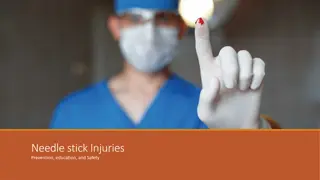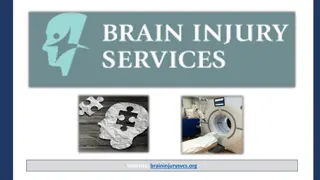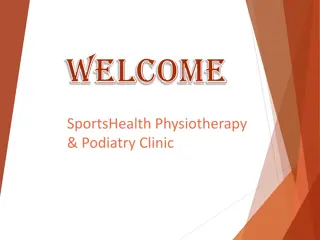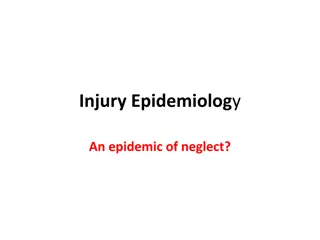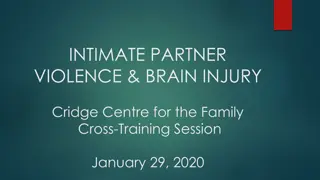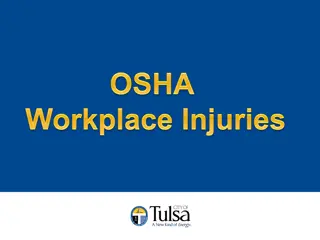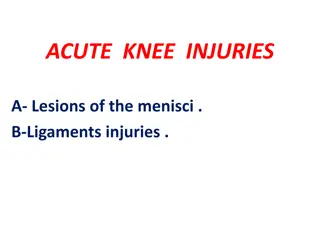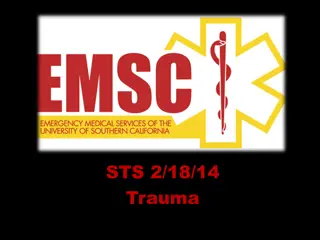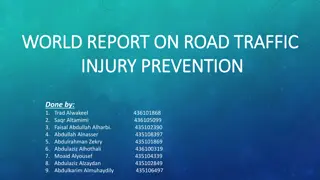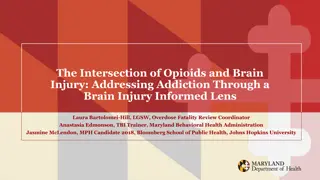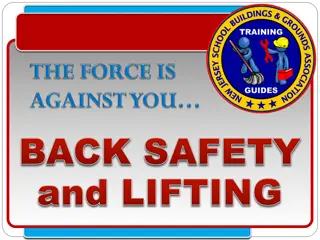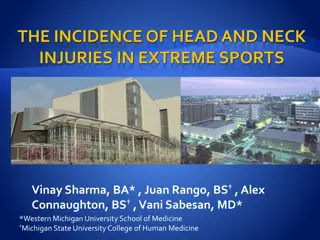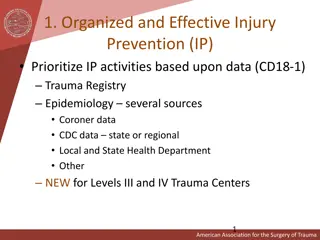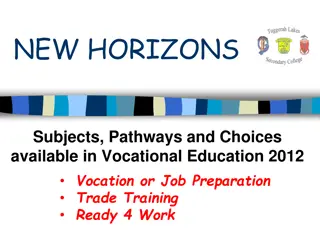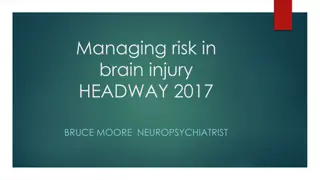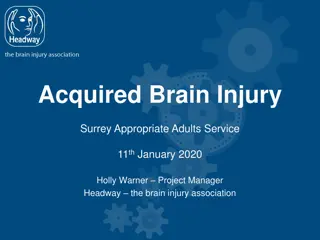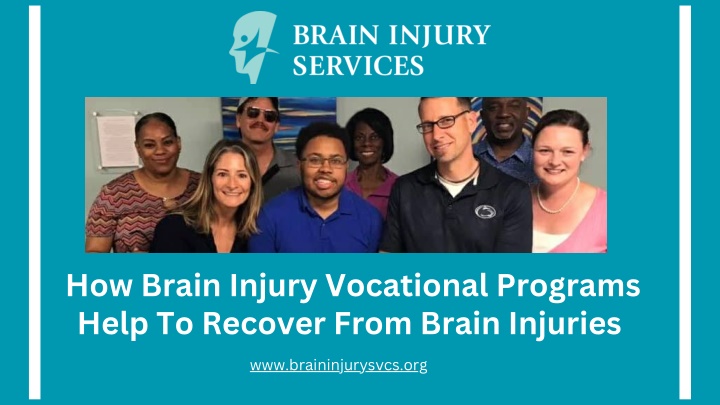
How Brain Injury Vocational Programs Help To Recover From Brain Injuries
Brain Injury Services provide essential support for individuals recovering from brain injuries. By offering personalized counseling, rehabilitation programs, and vocational training, they empower clients to regain independence and enhance their quali
Download Presentation

Please find below an Image/Link to download the presentation.
The content on the website is provided AS IS for your information and personal use only. It may not be sold, licensed, or shared on other websites without obtaining consent from the author. If you encounter any issues during the download, it is possible that the publisher has removed the file from their server.
You are allowed to download the files provided on this website for personal or commercial use, subject to the condition that they are used lawfully. All files are the property of their respective owners.
The content on the website is provided AS IS for your information and personal use only. It may not be sold, licensed, or shared on other websites without obtaining consent from the author.
E N D
Presentation Transcript
How Brain Injury Vocational Programs Help To Recover From Brain Injuries www.braininjurysvcs.org
Traumatic head or brain injuries potentially affect the human motor function, thinking process and psychological state. Prospective work after stroke return to work of many people is an important aspect of the restorative process of survivors. In this aspect of recovery BIVPs provide a priceless service to assist the brain injury patient to return to the community and enhance their quality of life. Understanding Brain Injuries Brain injuries can be classified into two main categories: traumatic and acquired. While TBIs are caused by a blow or jolt to the head, AIBs are attributed to internal processes like a stroke, an infection or tumor. In any case the outcomes of traumatic brain injuries are dramatic; the severity of cognitive impairments, emotional limitations in lieu of normal behavior responses and physical dysfunction. The Role of Vocational Programs Brain Injury Vocational Program sexactly designed for people with brain injuries focus on helping participants grow the skills and self-confidence necessary to reoccurrence to the workforce. Our programs includeseveral services and support structures that are personalized to meet the unique requirements of each individual. Here are some key ways in which BIVPs facilitate recovery:
1. Personalized Assessment and Planning Clients are subjected to tests to determine their capabilities, defects and the particular rehabilitation requirements they will require when enrolled in vocation programs. This makes the program more personal, distinguishing between their cases, the degree of the injury, IQ, or experience in the same workplace before the incidence. 2. Skill Development and Training Vocational programs offer a range of training opportunities designed to enhance participants' employability. This may include job-specific skills training, soft skills development, and vocational counseling. Participants may learn how to use new technologies, improve communication skills, or adapt to different workplace environments.
3. Cognitive Rehabilitation Many brain injury survivors face cognitive challenges, such as memory deficits, difficulty concentrating, or problems with problem-solving. BIVPs often include cognitive rehabilitation components to address these issues. This may involve structured exercises and activities aimed at improving cognitive function, enabling individuals to handle job-related tasks more effectively. 4. Emotional Support and Counseling Recovering from a brain injury can be emotionally taxing, leading to feelings of frustration, anxiety, and depression. Vocational programs provide emotional support through counseling and peer support groups. Participants can share their experiences and challenges, fostering a sense of community and understanding. This emotional support is vital for building resilience and coping mechanisms, allowing individuals to approach the workforce with a more positive mindset.
5. Job Placement Assistance One of the primary goals of vocational programs is to help participants secure employment. BIVPs often have strong connections with local employers and can assist individuals in finding suitable job opportunities. This may involve resume building, interview preparation, and job search strategies tailored to their specific abilities and interests. Job placement assistance is crucial in bridging the gap between training and employment, making the transition smoother for participants. 6. Workplace Accommodations Individuals recovering from brain injuries may require certain accommodations in the workplace to perform their jobs effectively. Vocational programs educate employers about the potential needs of brain injury survivors and advocate for reasonable accommodations. This may include flexible work hours, modified duties, or assistive technologies that facilitate job performance. By fostering an inclusive work environment, BIVPs help ensure that individuals with brain injuries can thrive in their roles.
7. Building Independence and Confidence Returning to work after a Brain Injury Support Services are not just about finding a job; it s about reclaiming a sense of independence and purpose. Vocational programs empower participants to take charge of their recovery and professional lives. As individuals gain new skills and successfully navigate the job search process, they often experience increased self-esteem and confidence. This newfound independence is a significant aspect of their overall recovery journey. Ultimately, BIVPs not only help survivors regain the ability to work but also foster a sense of purpose, community, and resilience that is essential for a fulfilling life after injury.
CONTACT DETAILS PHONE : +1 703-451-8881 FAX : 703-451-8820 EMAIL : info@braininjurysvcs.org ADDRESS : 8136 Old Keene Mill Road, Suite B-102 Springfield, VA 22152 WEBSITE : https://braininjurysvcs.org/ THANK YOU


